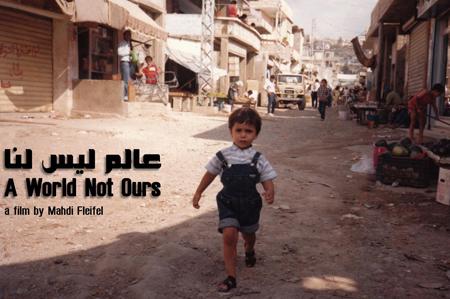Mahdi Fleifel's documentary "A World Not Ours" tells the story of multiple generations in exile in the Palestinian refugee camp of Ain El-Helwe in Lebanon. Mahdi spent two years in the camp in the 1980s before his family settled in Denmark. For years, he's been returning to the camp and keeping a video diary.
The contrast between life in the refugee camp and life in Denmark has been crucial to his choice of career. As a nine-year-old he found himself in a country where he did'nt speak the language and therefore had to invent new ways to communicate with his Danish classmates.
"I drew and acted to share my stories with the rest of my class. It has given me a different perspective which I never would have had if I had been born in Denmark, or never left the refugee camp. Worlds apart give a clearer picture of the world, and perhaps also a more comical view. I try to convey that in my films and stories," says Mahdi Fleifel.
Danish films are "the real deal"
Mahdi Fleifel has studied film at the at the University of Wales and completed an MA in writing at Royal Holloway, London, before he graduated from the National Film and Television School in Beaconsfield, England in 2009. Despite his many years abroad, the Danish film heritage has remained a huge influence for the young director.
"I grew up in the golden age of Danish cinema in the 90s. What Lars von Trier did for the Danish film scene had such great impact on the way we started to look at films, not just in Denmark, in the UK, where Danish film was 'the real deal' among us film students. However, the two Danish directors who have had most impact on me personally are Jon Bang Carlsen and Nils Malmros," says Mahdi Fleifel, who would like to return from his current UK residence to make films in Denmark.
"A World Not Ours" is produced by Patrick Campbell for Nakba Filmworks. The film screens in Toronto on 12, 13 and 15 September in the TIFF DOC section. See screening schedule
